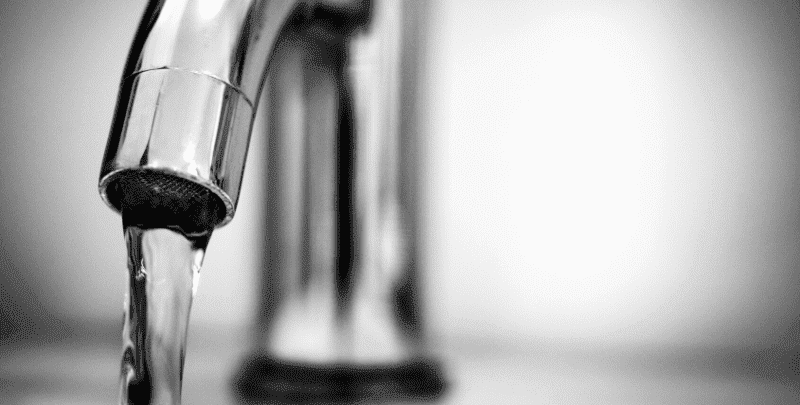
Low Water Pressure? Here's Why
Low water pressure is one of many plumbing inconveniences everyone experiences at least once in their life. This particular inconvenience might be one of the worst though. Once the water flow drops significantly, it makes daily chores even more of a chore. And don’t even think about taking a rewarding long shower at the end of the day.
Your low water pressure could be the result of several different things. From blocked pipes or leaking pipes to a faulty water pressure regulator, we’ll break them down for you. So the next time you turn on the garden tap and discover little more than a trickle, consider these possibilities.
The Water Supply is at Fault
While you might look to your plumbing first as the problem, there’s a chance your low water pressure is the fault of your council or local water supplier. Before you make a call to a local plumber to investigate the flow of water to your home, be sure to check in with your local council first.
Their plumbing systems aren’t exempt from the same problems yours can face, and this might just be a case of their plumbing needing a service! They might be able to let you know about plumbing work being done nearby which could be affecting your water pressure and water supply as well.
If this is the case, keep this experience front of mind. It’s all well and good when it’s your council’s fault. You’ll be wishing you went ahead with plumbing maintenance when low or no water pressure becomes a regular occurrence in your home.
You Might Have Faulty Fixtures
Before you jump the gun and start planning a replacement of your entire plumbing system, perhaps first check whether your plumbing fixtures might be at fault. It might just be that a particular fixture has a build-up that is restricting water flow.
The solution to your low water pressure problem could be as easy as simply cleaning your fixtures or upgrading old ones to something new.
Your Water Pipes are the Problem
Your low pressure could be the result of an array of different pipe-related problems.
Corroded Pipes
Corrosion is an inevitable reaction when metal makes contact with water. Older homes that have galvanised steel pipes are highly susceptible to this. When corrosion builds up, it can cause blockages. This means less water can travel through your pipes and you might experience lower water pressure.
The cost of fixing this problem can vary greatly depending on the extent of corrosion. If only a small amount of the pipe is corroded, then this section can simply be replaced. Too much corrosion, however, and you might need a whole new set of pipes. Upgrading to copper pipes which are
Pipes Have Build-Up
Much like corrosion, your pipes can generate a build-up of minerals and sediments that your water ultimately carries with it. As water travels through the pipes, it deposits these minerals and sediments. Over time they can build up to form blockages that cause you to have low water pressure.
A plumber can flush your plumbing system to rectify this, or you could consider installing an inline filter. This filter removes impurities from the water before they reach your internal plumbing system and have the opportunity to cause problems!
Your Pipes are the Wrong Size
If you’ve recently had plumbing work done in your house and soon after you’ve noticed low water pressure, you might have had the wrong-sized pipes installed. Any local plumbers that you hire must be fully licensed and experienced in their field. You run the risk of having to pay more down the track when their work proves to not be up to scratch otherwise.
Similarly, we don’t recommend you carry out DIY work. Not only is this illegal in most cases, but you’re likely to make a mistake somewhere. A plumbing mistake can prove to be expensive, potentially causing water damage to your home and damaging the structural integrity of multiple plumbing fixtures.
Leaky Pipes
When your pipes spring a leak, it will affect the volume of water that comes out of your tap, and it’ll look like your water pressure is low. Water leaks will usually be accompanied by an unusual spike in your water bill and signs of water damage.
Leaking water pipes can be difficult to detect if they’re actually a concealed leak in your walls or the floor. There this is best left to a professional.
Water Demand is Too High
Low water pressure might be a sign that your hot water system just isn’t cutting it anymore. If you have low pressure specifically for hot water only, your water heater is the likely cause of the problem.
Your hot water system can only provide so much water at a time – its flow rate. If you exceed this by trying to use more water than it is capable of supplying, you will likely experience low water pressure. You could consider coordinating hot water usage amongst your family, otherwise, it might be time for an upgrade.
You Have a Broken Pressure Regulator
Plumbers install water pressure regulators in many homes to monitor what is being allowed into your plumbing. If you have a failing pressure regulator, you might find yourself experiencing low water pressure in your home. Alternatively, you could be experiencing high water pressure, and that brings another range of plumbing problems with it. You may need a qualified plumber to replace your pressure limiting valve and get your water pressure back to suitable levels.
Do you need a plumber to fix your water pressure issue or problems? We can have a professional service technician conduct a pressure and flow test on your water meter to determine any low flow issues. We can also provide essential maintenance work on your property’s plumbing to ensure it continues working at its best. Metropolitan Plumbing has plumbing experts available 24/7 to help.
Published: 2020-06-25

















